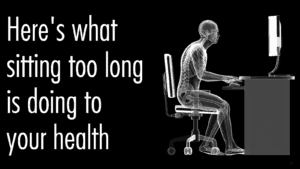Wouldn’t it be lovely if relationships were all wine, roses, and moonlight, just because you’re in love? Unfortunately, you don’t live in a utopia, and relationships are as much about the valleys as they are the mountain tops. You will find that when you’re down and out is when you can use effective tools to build a stronger partnership.
Instead of thinking, you have a problem, or your partner does, realize that you’re in it together. You can’t be happy if you see your man depressed and downtrodden. Supportive partners can identify problems and find ways to either resolve or cope with them efficiently.
In many failed relationships, ex-partners sometimes felt that their person wasn’t sympathetic. To support someone doesn’t mean you offer vain flattery. Instead, you surround each other with love and work on solutions to your problems together.
10 Tips for Being More Supportive
No matter the dilemma, your presence will be most welcome to him. It’s reassuring for your mate to have you beside him, even when you are silent and are just holding his hand. Here are ten helpful ways to be encouraging of your lover when she’s going through challenging times.
1. Practice Active Listening
If your auditory system is working properly, you can hear what your partner says, but that doesn’t mean you are listening. Many times, when your lover is experiencing a dark place on the road of life, she needs you to listen to him and be fully present. She’s looking to you to understand and hear what she has to say.
As a loving mate, practice active listening skills, and you will see a marked difference in your relationship’s communication. Open yourself up with neutral body language and look at him while he’s talking. Listen, not just hear his words without interrupting or thinking about what you want to say.
Also, learn how to mirror his emotions during the conversation and pause a few seconds before responding. It’s often helpful to repeat what you’ve just heard in your own words, only if he needs to clarify anything for you. Instead of offering advice, listen with your heart, and be there for him.
2. Be Empathetic
Although some scientific studies theorize that some animals show signs of primitive empathy, it’s more of a human trait. To empathize with your partner doesn’t mean that you are feeling sorry for him. Empathy goes beyond sympathy and allows you to put yourself in your lover’s shoes.
You can read a tragic news story and automatically feel for the people involved because you might imagine how you would feel. Consequently, this is necessary cognitive empathy that can influence you even for total strangers. To be emotional and compassionately empathetic, your partner’s emotions resonate with yours, and you reach out to do something about it.
3. Have a Change of Pace
When your mind is stressed, or your emotions are frazzled, it can make you anxious or depressed. Have you noticed this about your partner? You wish you could make the burden disappear, but that’s not happening.
Often, a diversion is what people need to take their minds off their problems for a while. It won’t provide a magic solution, but it can give your partner some mental rest. Do something spontaneous and have some fun together. A rested mind is more apt to figure out problems more efficiently.
4. Accept the Unchangeable
Whoever penned the iconic Serenity Prayer had an insight that was beyond this world. A sign of spiritual maturity is to realize that some issues can’t be changed and are beyond your control. Maybe your partner needs a gentle reminder that her circumstances are unavoidable.
The legendary poet Dr. Maya Angelo declared that although there are things in your life that you can’t change, you still have the power to decide how you will react to them. As a supportive mate, you can help your lover sort through situations that can be changed and require coping skills.
5. Anticipate Your Partner’s Needs
Do you and your partner often finish each other’s sentences or come up with the same ideas? Such is the case for couples who have been together for a long time. You have listened and empathized with each other for so long that you almost have a psychic bond.
If you see your beau struggling with acute or chronic issues in his life, don’t wait for him to ask you for help. Because of society’s unfair definitions and expectations, most guys view asking their mate for help as being weak. You know your man better than anyone, and your heart knows when he’s hurting before he can say a word.
6. Stay on the Same Page
The traditional homily of a partnership making two people one flesh is often misunderstood. While you empathize and feel part of each other in a committed relationship, you’ve not lost your individuality. Still, you must be supportive and work together for a union to flourish.
When your partner is coping with difficult issues, maybe at work or other challenges, be a united front. Try to find solutions together, and she will feel your supportive love. Listen intently and ask questions, so there are no misunderstandings.
7. Be an Encouragement
When your man is beaten down to the ground, you may be the only person who can lift his spirits. As committed partners, you should be each other’s biggest fan and cheerleader. Sincere encouragement can go a long way when your lover feels like he’s a loser, and everything is his fault.
Find helpful ways to offer words of praise and encouragement that are genuine and specific. Remind him of his vast talents and past achievements, and how you’ve overcome obstacles victoriously in the past. It may rev up his spirits enough to realize that nothing is forever, even problems.
8. Choose Your Battles
One of the most natural emotions to display is anger, especially for guys. In reality, anger is a formidable mask to cover fear and powerlessness. It’s not easy to be supportive when your person is taking his anger and frustration out on you.
In these cases, you can take so much until you feel like snapping. Although it’s easier said than done, try to step back and be an objective observer. When people are hurting, they usually lash out at the ones they love who are trying to help.
If your lady doesn’t feel like talking, just let her know you’ll be there to listen when she’s ready. Please resist the urge to be an armchair counselor and try to pull the issues out of her. She will probably end up feeling resentful of you, and she will shut down any conversation in the future.
When you are your lover’s safe place, she feels free and safe to display anger and say what’s on her mind. However, that doesn’t give anyone the right to abuse you verbally or physically. If your man is feeling grumpy about everything you say or do, refuse to be taken into his dark mood.
You’ll probably find that something is on his mind, and he will apologize for taking it out on you.
9. Find a Source of Strength Together
As humans, you and your person are triune beings composed of body, mind, and spirit. These work in tandem for your total well-being. If any aspect is askew, your entire being will be affected. Being supportive doesn’t mean you have all the answers or strength.
When your mate is going through a hard time, learn to draw from your spiritual strength. Look to your Higher Power together as you both perceive it. Whether your religious traditions involve prayer, meditation, or other spiritual connections, empowering your spirit can help each other when life’s storms are overwhelming.
10. Know When to Ask for Help
Even with your best efforts to be supportive, some problems are too much for you two to handle. If this is the case, don’t be afraid to ask for help from a mental health professional. There is no shame in seeking counseling when you need it.
Many people seek counseling from their trusted spiritual leader. You can always feel free to talk to your primary healthcare provider to refer you to a licensed therapist. Perhaps the problem is a mental health issue that has yet to be diagnosed.
Be sure that your partner is a willing participant, and you see counseling as a strength, not a weakness. She may choose to go alone or ask you to join for moral support. Choose an experienced counselor who makes her feel comfortable, so she can freely discuss the issues that are happening in her life.
Final Thoughts on Showing Your Supportive Side When Your Partner Needs You to Be Strong
When a couple is in a loving relationship, they are empathetic, even in the worst of times. In these trying situations, be the first hand that reaches out to him or her in a nonjudgmental way to form a stronger partnership. A time may come when you’ll reach out to him or her in your hour of need, and they will be there.













